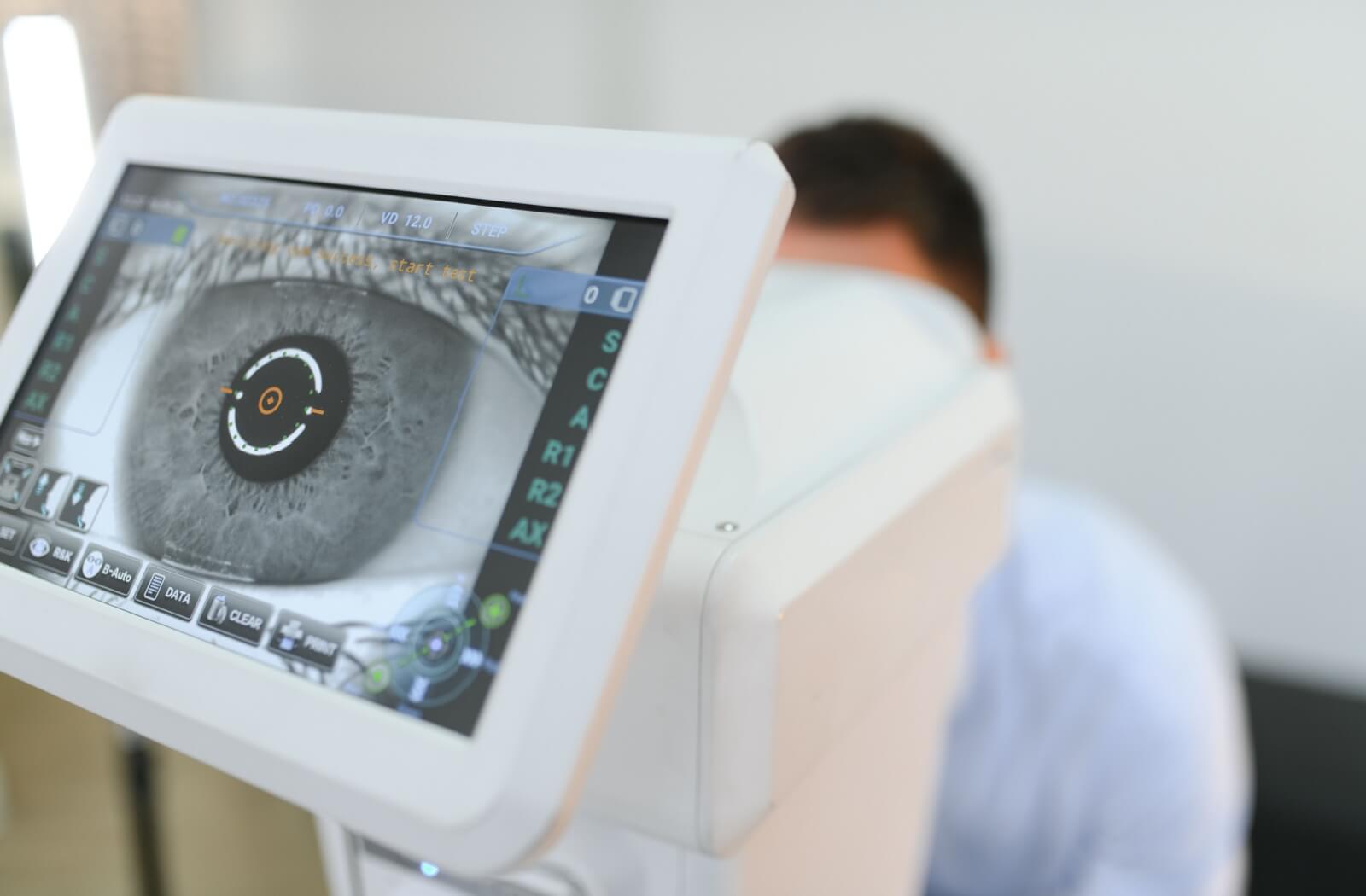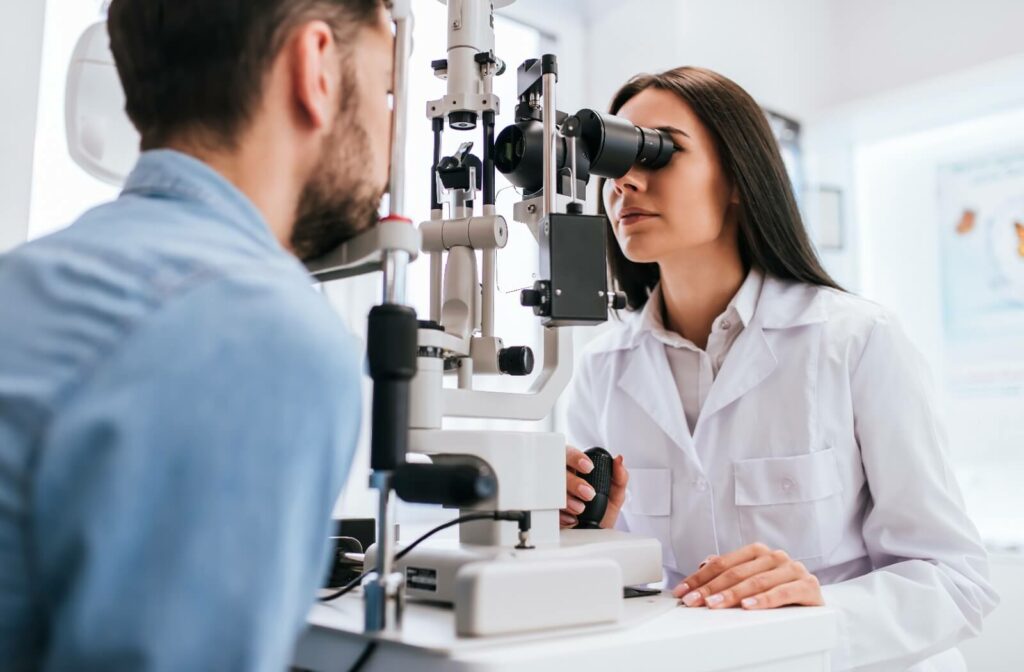Your eye exams do more than detect vision and eye health concerns; eye exams can also detect over 20 other systemic diseases, even if patients don’t have noticeable signs or symptoms. Early diagnosis and treatment of many diseases is the key to recovery. Regular eye exams are a safe, essential way to spot issues early.
If you haven’t seen your eye doctor within the last 12 months, it’s time to book an appointment. Not only for your vision but for your overall health and wellbeing.
What Is Involved in a Standard Eye Exam?
An eye exam begins with an overview of your medical and family history, and several tests to assess your vision and evaluate the health of your eyes, including the muscles and blood vessels around them.
During the exam, your provider will shine a light on your pupil to observe its dilation, the small opening at the center of your iris. They will also check how your eyes move, focus, and work together. Standard tests include:
- Visual Acuity: You’ll read letters on an eye chart from a distance, covering one eye at a time. Your provider may use a phoropter, a device with multiple lenses, to determine if you need glasses and to find the correct prescription through a process called refraction.
- Visual Field Test: To assess peripheral vision, your provider will move an object from side to side and up and down while you keep your head still. This can also be done with a computer program to evaluate your full range of vision.
- Color Vision Test: This test checks for color blindness by showing images with colored dots and numbers. Those with color deficiency may not see the numbers.
- Corneal Topography: A computer creates a “map” of your cornea by taking thousands of measurements. This test helps detect astigmatism and is used for fitting contact lenses and preparing for corneal surgery.
Depending on your needs, your optometrist or ophthalmologist can perform some additional tests. By performing these tests, your provider ensures a comprehensive assessment of your eye health and vision, allowing for early detection and treatment of potential issues.

What Diseases can be Detected During an Eye Exam?
Regular eye exams ensure you can see clearly, and look for any signs of eye conditions, such as:
- Glaucoma: This group of eye diseases damages the optic nerve, leading to irreversible vision loss if untreated. Many forms of glaucoma increase intraocular pressure, but not all do.
- Age-Related Macular Degeneration (AMD): AMD causes gradual deterioration of the macula, leading to loss of central vision while peripheral vision remains intact.
- Cataracts: Cataracts involve the clouding of the eye’s lens, often due to aging. This condition progressively worsens vision, making it difficult to read, drive, or recognize faces.
Eye exams are also an important part of your overall healthcare. Beyond clear vision and eye health, eye exams can detect a number of other diseases, such as:
- Aneurysms
- Brain tumors
- Cancers of blood, tissue or skin
- Diabetes
- Giant cell arteritis
- Heart disease
- High blood pressure
- High cholesterol
- Lupus
- Lyme disease
- Medication toxicities
- Multiple sclerosis
- Myasthenia gravis
- Rheumatoid arthritis
- Sarcoidosis
- Sexually transmitted diseases
- Sickle cell disease
- Sjögren’s syndrome
- Stroke
- Thyroid disease
- Vascular disease
- Vitamin A deficiency
Prevention Eye Diseases & Treatment
The most effective way to prevent vision and health issues is by seeing your doctors regularly. Generally, you should get an eye exam every 1 – 2 years. After turning 65, scheduling an eye exam every year is essential for maintaining your eye health and vision. Many eye diseases can develop with age, and yearly exams enable your optometrist to monitor any changes in your vision.
If you have conditions such as diabetes, you may require more frequent eye exams. For those under 19, an annual eye exam is also important to protect vision. The eyes undergo significant changes during growth into adulthood.
However, you should follow the advice of your eye doctor to do what’s right for your eyes, vision, and health.
Protect Your Health: Visit Your Eye Doctor
Some patients can feel nervous visiting the eye doctor, but at Valley Eye & Vision, we work hard to ensure you feel comfortable. We’ll ensure you understand every step of your exam and answer any questions you may have.
Book your next eye exam today and give yourself peace of mind. Your health should always come first.


